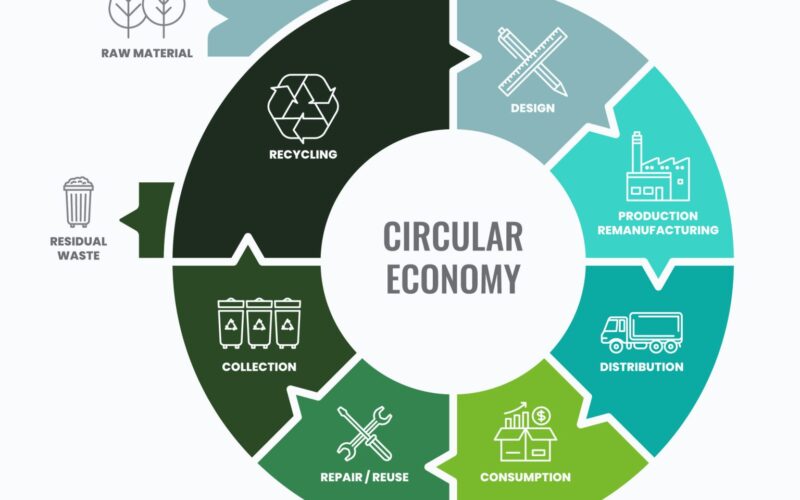The UN Environment Programme Finance Initiative (UNEP FI) has released the first reports in a new series aimed at helping banks implement and benefit from the interlinkages between the circular economy and major sustainability challenges such as climate change, nature loss, and pollution.
These resources, designed for the 300+ signatories of the Principles for Responsible Banking and the broader banking sector, offer practical guidance for moving from setting sustainability targets to achieving these commitments. The guidance encourages banks to integrate circular economy principles into their internal policies and processes, engage clients in transitioning to circular business models, redirect financial flows towards circular solutions, and advocate for mainstreaming circularity.
Resource use is at the heart of the triple planetary crisis, with resource extraction and processing accounting for over 55% of global greenhouse gas emissions. Implementing a circular economy is crucial to achieving net zero and other sustainability objectives. Once sustainability targets are set, banks are urged to leverage the circular economy to advance the implementation phase of their Principles for Responsible Banking journey. This includes identifying and supporting circular solutions and opportunities in their portfolios.
The reports also help banks prepare for new and upcoming regulations. More governments are enacting circular economy roadmaps and policies, incorporating circular economy strategies into disclosure requirements and sustainable development strategies, including Nationally Determined Contributions (NDCs) to the Paris Agreement.
The reports highlight how adopting circular models can mitigate risks associated with linear business models as demand for raw materials intensifies and regulations evolve. Research indicates that transitioning to a circular economy could generate significant economic benefits, estimated at $4.5 trillion in annual economic output by 2030, through increased resilience to macroeconomic shocks and reduced costs associated with raw material and energy consumption, waste management, and emissions control. Social benefits, such as the creation of green jobs and reduced inequality, are also expected if the circular economy is implemented in line with just transition principles.
The opening report outlines how the circular economy can enable responsible banking by connecting circularity with environmental and social impact. The second report explores circular solutions to achieve climate targets, providing banks with practical insights and actions to integrate circularity into their climate transition plans by increasing financing for circular solutions and partnering with policymakers to enhance circularity. Two supplements accompanying the climate-focused report guide banks in developing sector-specific financing strategies for the buildings and construction, and textile sectors, two high-impact areas with significant circularity potential.
UNEP FI will complete the series with additional sectoral supplements focusing on the nexus with climate. Starting in 2025, a new guidance will be co-developed with banks to show how transitioning to a circular economy can benefit nature, mitigate pollution, and contribute to healthier, more inclusive economies.















